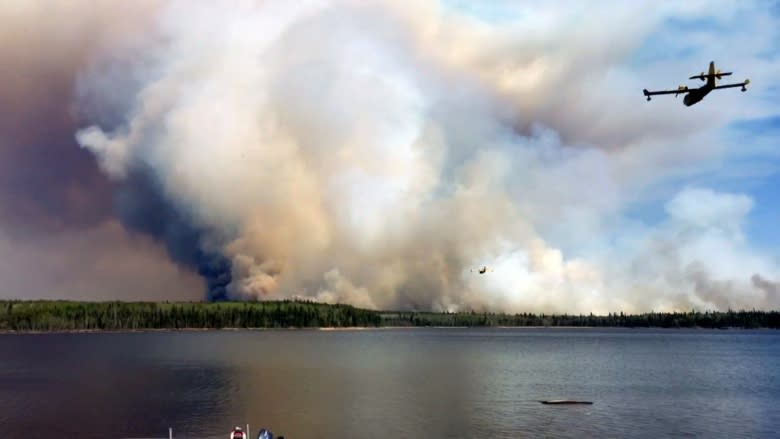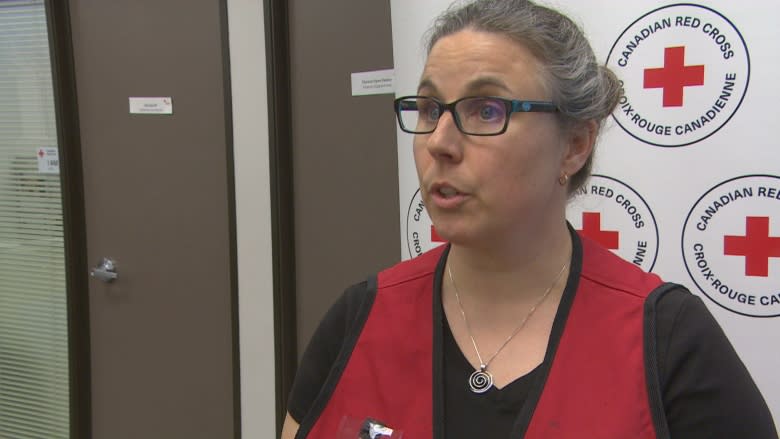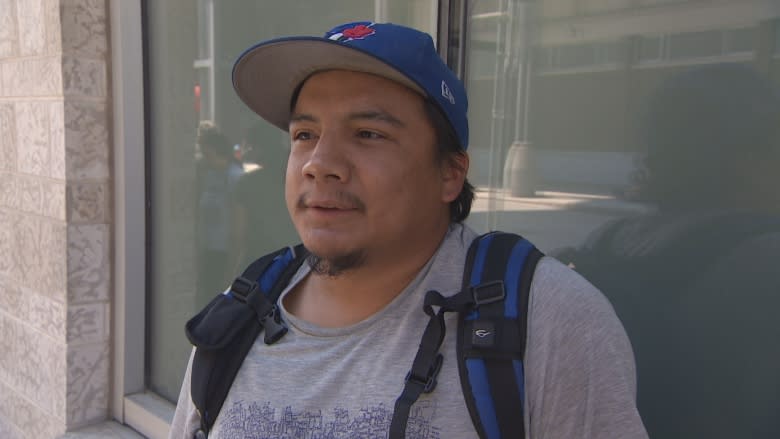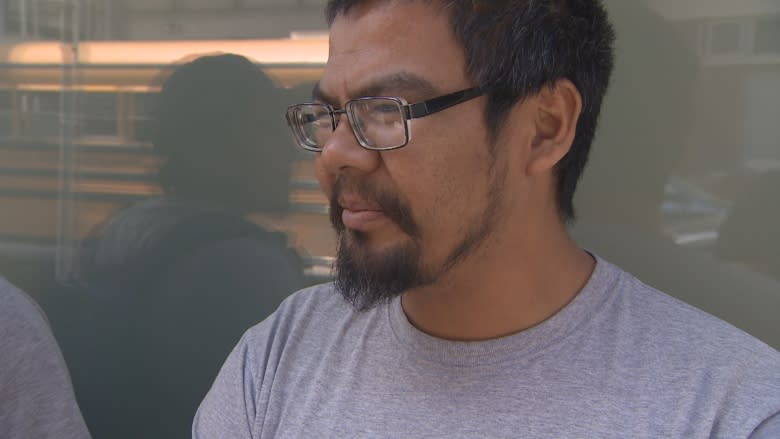Reception centre opens for wildfire evacuees in Winnipeg
A community reception centre has been set up in Winnipeg for evacuees from two Manitoba First Nations forced from their homes by wildfires earlier this week.
The Duckworth Centre at the University of Winnipeg is being used as a central location to provide services for the roughly 1,200 evacuees from Little Grand Rapids and Pauingassi First Nations.
"Right now the fires are still very unpredictable and we're unclear as to when people will be going back," said Lise Anne Pierce, from the Red Cross, which has rented the space and is helping to orchestrate services.
"People can get very bored and very fed up, so we work very hard to make sure there's recreation activities and ways to connect in with the community events that are occurring throughout Winnipeg."
As well as giving those impacted by the evacuations a place to pick up supplies including food and clothing, Pierce says evacuees are also receiving gift cards to purchase the things they'll need while they're away from home.
The Red Cross has also set up an electronic-registration system to help manage the evacuees and make sure they're kept up to date with information as quickly and easily as possible.
"We're working with community and for community to be able to ensure all of the services are in one place for people," said Pierce.
Fire started Monday
The evacuees were airlifted to the city over multiple days this week, including more than 820 from Little Grand Rapids and 330 from Pauingassi. The communities are about 265 kilometres northeast of Winnipeg near the Ontario border and are less than 20 kilometres apart.
The Red Cross has arranged for the evacuees to stay in a number of Winnipeg hotels.
The fire started midday Monday, the province has said, and is suspected to have been started by human activity.
While light rain fell in the area Friday, a provincial fire bulletin sent to media Saturday said the fire still covers 25,000 hectares and is roughly four kilometres away from Pauingassi.
Crews have set up sprinklers to protect homes in Little Grand Rapids, and work is underway to protect homes in Pauingassi, according to the province.
'They were in shock'
Nico Owen is from Little Grand Rapids and arrived in Winnipeg Wednesday.
While he waited to leave, Owens says he helped drive boats which ferried evacuees to float planes waiting on the water because the fire was too close to the airport to board planes there safely.
He says the smoke was so thick he had to use a flashlights and could still only see about 20-feet ahead of him.
"It was pretty scary," he told CBC News outside the reception centre in Winnipeg Saturday.
"The smoke was getting thick so everybody had to wear masks … I had a difficult time seeing where I was driving.
"People were almost panicking … they were in shock."
Owens arrived in the city by plane with just his backpack and a few sets of clothes.
He says it's good to be safe in the city now, but he's left wondering what's happening back home.
"I'm just wondering when we're going to be able to go back," he said.
Timothy Keeper is also from Little Grand Rapids and had already been in Winnipeg when the fires started.
Now he's also stuck in Winnipeg waiting to get the OK to return home.
"I'm just glad that the Red Cross stepped up to help and all the band members are getting the help that they need," he said. "That's the main thing that I'm glad that's happening, and that people actually have a place to stay."
The province says two new fires started in Manitoba Friday, bringing the total number of of fires burning across the province to 185, well over the 20-year average of 110 for this time of year.
Ontario and Quebec have both sent help to battle the fires. Ontario sent 120 firefighters and Quebec provided four water bombers.





